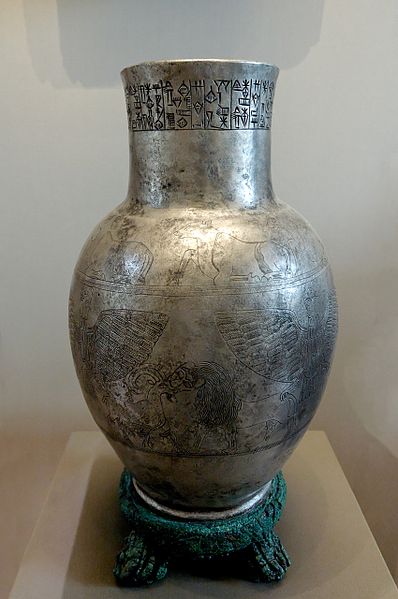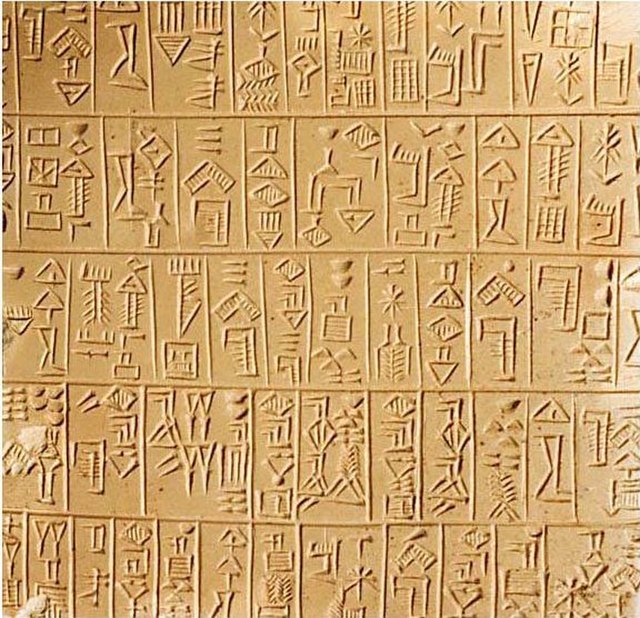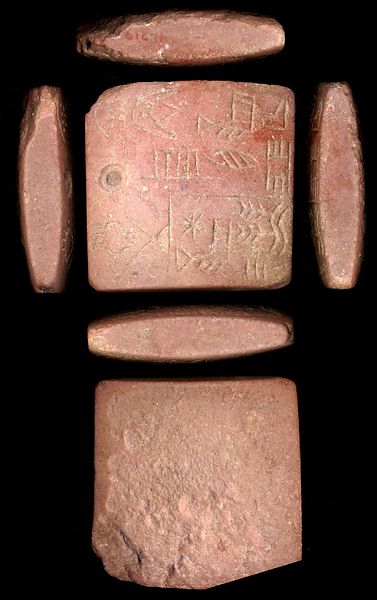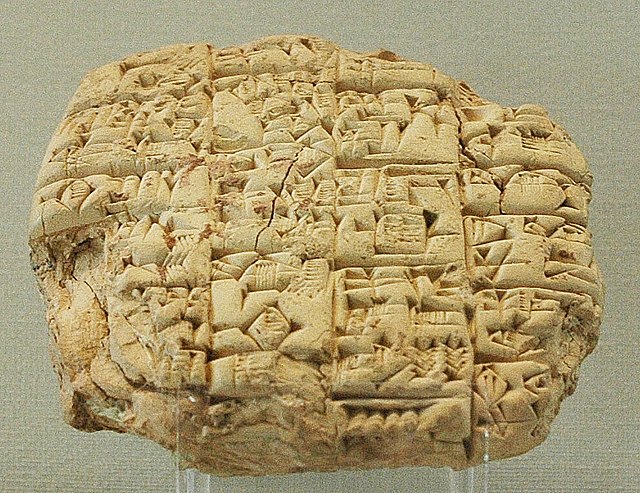Lagash was an ancient city state located northwest of the junction of the Euphrates and Tigris rivers and east of Uruk, about 22 kilometres (14 mi) east of the modern town of Al-Shatrah, Iraq. Lagash was one of the oldest cities of the Ancient Near East. The ancient site of Nina is around 10 km (6.2 mi) away and marks the southern limit of the state. Nearby Girsu, about 25 km (16 mi) northwest of Lagash, was the religious center of the Lagash state. The Lagash state's main temple was the E-ninnu at Girsu, dedicated to the god Ningirsu. The Lagash state incorporated the ancient cities of Lagash, Girsu, Nina.
Relief of Ur-Nanshe. At the top he creates the foundation for a shrine, at the bottom he presides over the dedication (Louvre).
Entemena's inscribed silver vase, c. 2400 BC (Louvre)
Eannatum, King of Lagash, riding a war chariot (detail of the Stele of the Vultures). His name "Eannatum" (𒂍𒀭𒈾𒁺) is written vertically in two columns in front of his head. Louvre Museum.
The cuneiform text states that Enannatum I reminds the gods of his prolific temple achievements in Lagash. Circa 2400 BC. From Girsu, Iraq. The British Museum, London
Sumerian is the language of ancient Sumer. It is one of the oldest attested languages, dating back to at least 2900 BC. It is accepted to be a local language isolate and to have been spoken in ancient Mesopotamia, in the area that is modern-day Iraq.
Sumerian language
This proto-literate tablet (c. 3100 – 2900 BC) records the transfer of a piece of land (Walters Art Museum, Baltimore)
The first known Sumerian-Akkadian bilingual tablet dates from the reign of Rimush. Louvre Museum AO 5477. The top half is in Sumerian, the bottom half is its translation in Akkadian.
Letter sent by the high-priest Lu'enna to the king of Lagash (maybe Urukagina), informing him of his son's death in combat, c. 2400 BC, found in Telloh (ancient Girsu)








